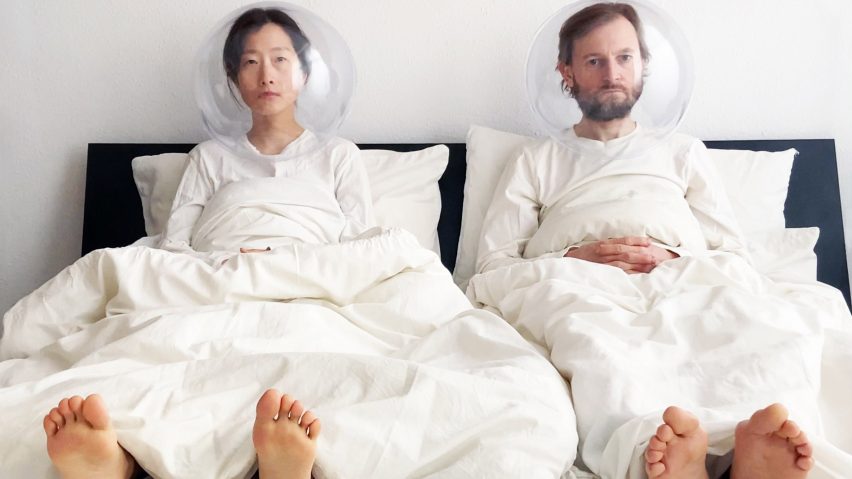
This week, designers imagined ways to socialise in a post-coronavirus world
This week on Dezeen, designers focused their efforts on creating objects for life after Covid-19 lockdown, from blankets and frames for social distancing in parks to unconventional face shields.
Berlin art collective Plastique Fantastique created an open-source face shield inspired by 1950s science fiction comics and "utopian movements" of the 1960s.
The fish bowl-shaped wearable, called the iSphere, is made up of two transparent, hollow hemispheres that have been taped together.
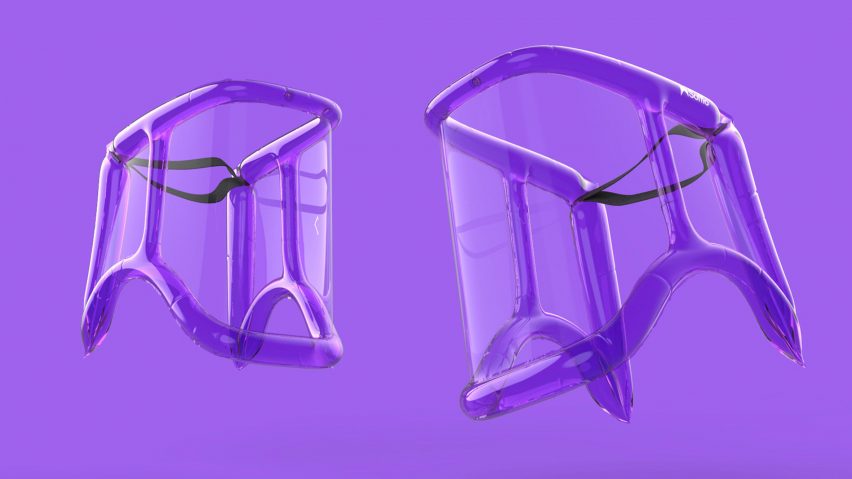
Italian designers MARGstudio, Alessio Casciano Design and Angeletti Ruzza imagined people could wear colourful, inflatable face shields to socialise with friends and family once the peak of the pandemic is over.
The concept design, called Soffio, boasts an inflatable structure made from PVC and secured to the head with an elastic strap. A plastic visor is used to protect the face, and is tilted upwards to allow the user to eat or drink while wearing it.
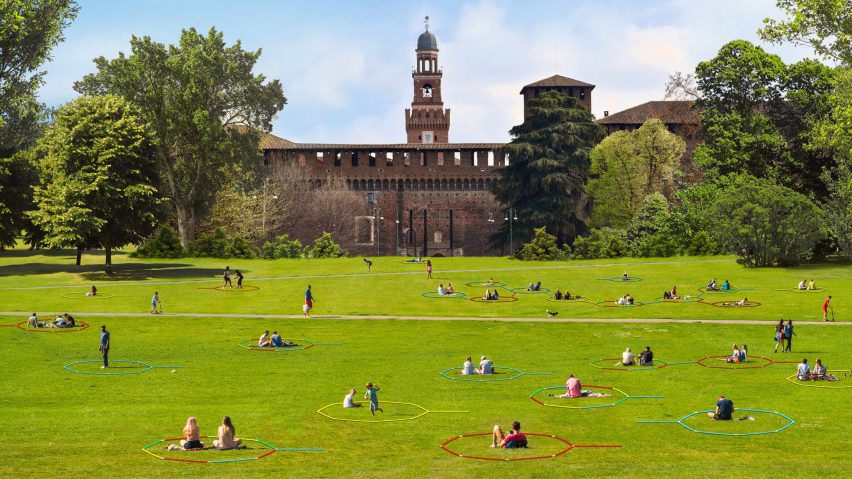
London designer Paul Cocksedge and design studio SBGA Blengini Ghirardelli both envisioned how people will return to public parks after lockdown while still following social-distancing guidelines.
SBGA Blengini Ghirardelli proposed using a modular frame made of colourful fibreglass rods that would snap together to form a circle on the ground for up to two people to sit inside, while Cocksedge suggests using a picnic blanket with circular markers dotted around its perimeter at two metres apart.
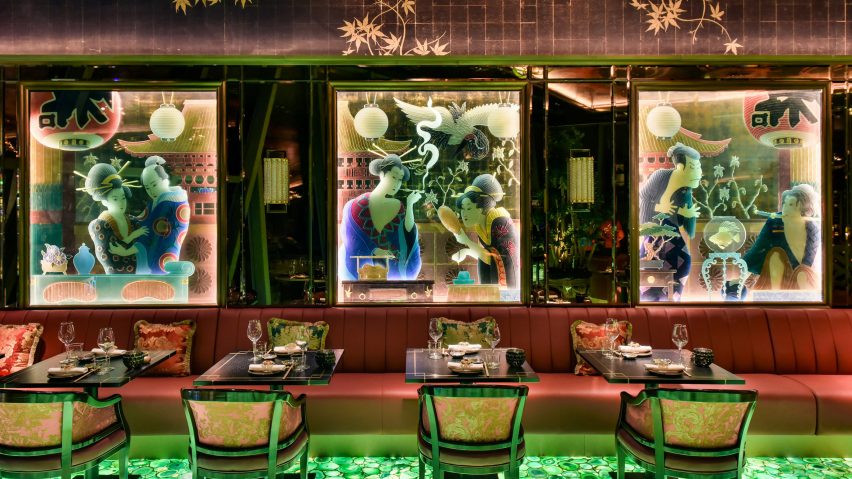
Interior design studio Roar compiled a trends report forecasting how restaurants will change post-Covid this week, which includes "severe but short-lived" layout restrictions.
While physical menus, cash payments and buffets will be a thing of the past, according to panelists, the design of restaurants themselves will be steered more towards "escapism" and we may even see a new-found modernism movement arise.
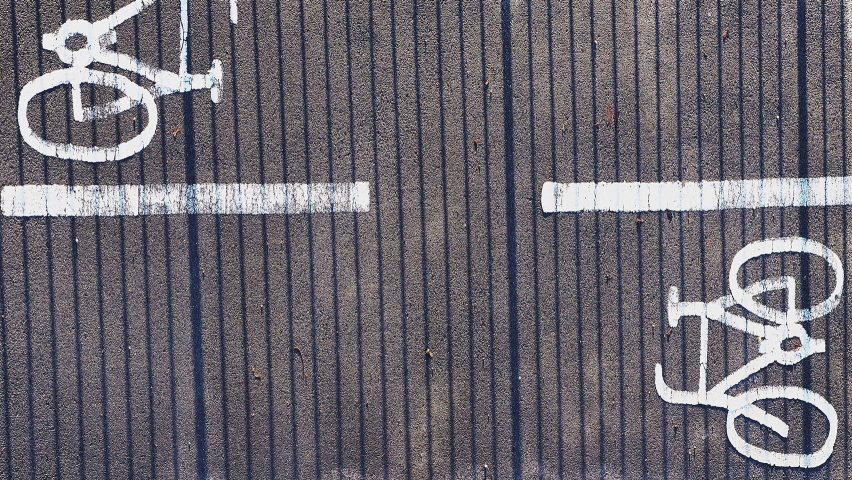
Dezeen also reported that cities across Europe and the Americas – including London, New York, Paris and Milan – are responding to the pandemic with plans to take street space away from cars to make cities more friendly to pedestrians and cyclists.
It is hoped that doing this will enhance freedom of movement without raising the risk of infection, by offering more space for people to maintain social distancing.
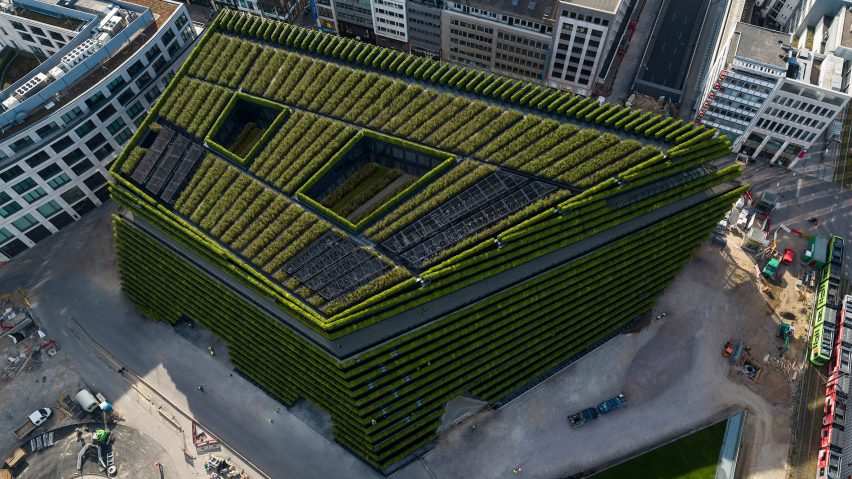
Another project hoping to create a greener environment is the Kö-Bogen II office block in Düsseldorf, Germany, which Ingenhoven Architects has covered with 30,000 plants.
The myriad plants form hedges that would stretch five miles (or eight kilometres) if laid end-to-end. This, according to the architects, Ingenhoven Architects makes it Europe's largest green facade.

Other projects that have been popular with Dezeen readers this week include a boutique hotel in Bali by Australian architect Nic Brunsdon, an imaginary holiday home by Child Studio and Plenaire, and a fragmented concrete house in Mérida, Mexico.